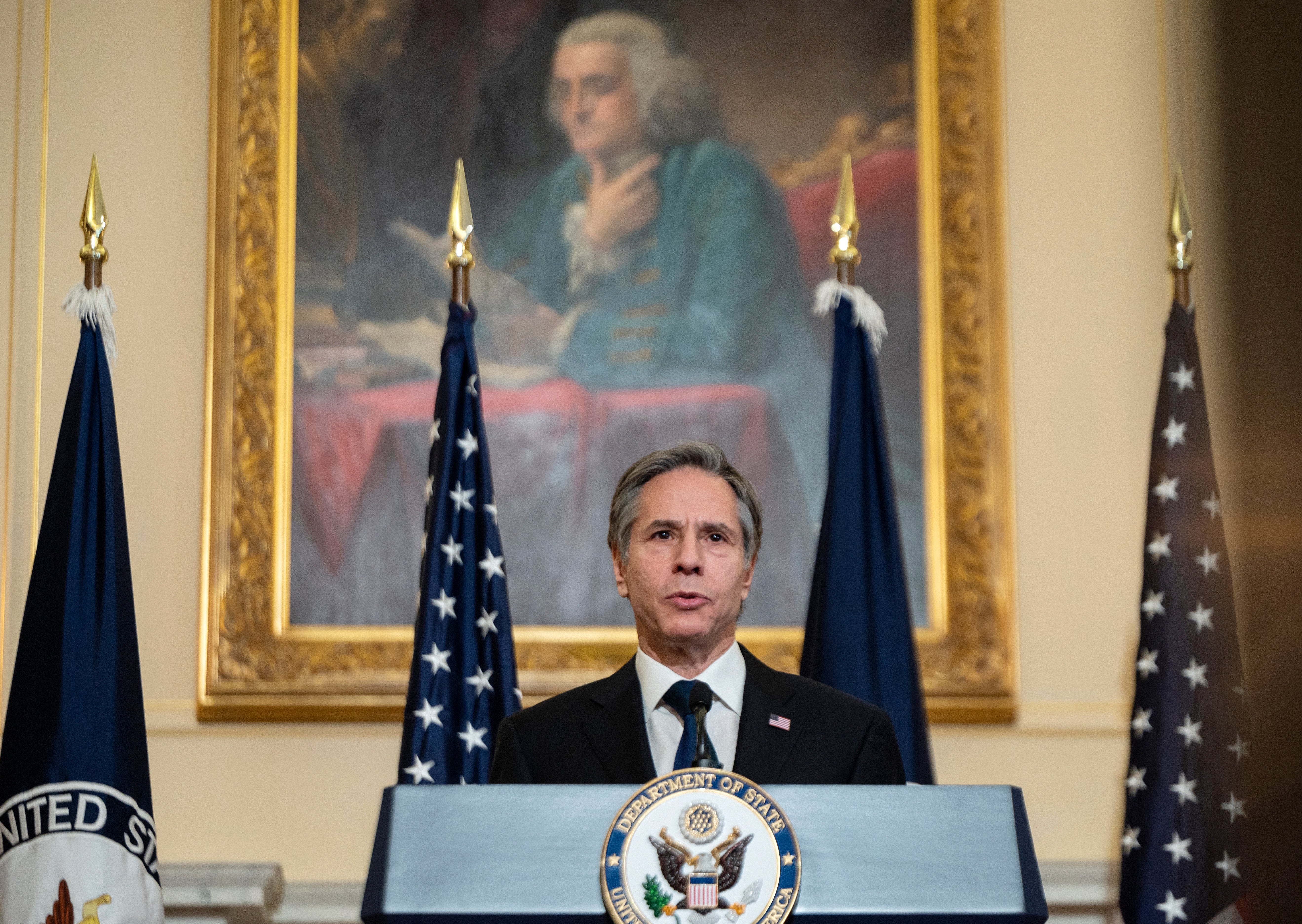The Independent's journalism is supported by our readers. When you purchase through links on our site, we may earn commission.
From Syrian airstrikes to China, Biden’s foreign policy is getting complicated
It’s clear from that the 46th president is treading a fine line between alienating progressive Democrats and outraging Republicans

Secretary of State Anthony Blinken’s testimony before the House Foreign Affairs Committee on Wednesday afternoon gave Americans their first look at President Joe Biden’s chief diplomat in action. Unfortunately for anyone expecting a repeat of the often explosive, always tense encounters that defined former Secretary Mike Pompeo’s tenure, lawmakers found something very different in his successor.
Prior to Wednesday’s hearing, the White House’s foreign priorities rankled progressive Democrats who watched with dismay as Biden launched an airstrike against Syria almost immediately upon entering office. On immigration reform, an issue Biden championed as not only a policy issue but a moral imperative, Press Secretary Jen Psaki now says Democrats face “difficult choices” bound to leave the left feeling at least partially betrayed.
Blinken thus faced the unenviable task of selling Biden’s foreign policy vision to both Republicans who criticized Biden as too soft on China and progressive Democrats who worry the president represents the continuation of bipartisan military adventurism.
“We asked a simple question” to determine Biden’s foreign policy, Blinken said in prepared remarks. “Will this help American workers and families?”
Blinken’s focus on localizing the benefits of Biden’s foreign policy serves a dual purpose. For the 40 percent of Americans who report that they’re still feeling the financial impacts of Covid, Biden will need to make the case that money and time spent abroad instead of at home still benefits the average household. And for Republicans still huffing Donald Trump’s “America First” nonsense, Blinken’s domestic focus provides at least superficial cover to GOP claims that Biden intends to kneel before China while shipping American jobs overseas.
That’s a big reason why Blinken focused on progressive wish-list items Biden tackled during his first weeks in office: rejoining the Paris Climate Accord landed near the top, with actions to end family separation at the southern border and repeal Trump’s so-called Muslim travel ban receiving special attention.
But things aren’t as rosy as they seem. Biden recently infuriated immigration activists with his decision to deny updated visas to travelers selected through the State Department’s diversity lottery. While other travelers would have the option to resubmit their visas for adjudication under the revised rules, diversity lottery winners are out of luck. House Democrats didn’t push Blinken on that confusing decision, but progressive voters around the country are already mobilizing to pressure him and Biden into rethinking the measure.
Blinken repeatedly emphasized that the Biden State Department plans to aggressively challenge the growing influence of Russia and China, aligning with the GOP in sharply criticizing Russia’s controversial Nord Stream 2 natural gas pipeline project and commiserating with Democratic Rep. Albio Sires about Russia’s opportunistic use of Venezuela as a platform to undermine faith in other Latin American democracies.
“When we see democracy being challenged by China, or by Russia, one of the things they’re trying to do is not just divide us from other democracies, but to divide us from ourselves,” Blinken told Virginia Rep. Gerry Connolly. “To make the case that the system we all believe in doesn’t work.”
If Blinken’s dispassionate and collaborative approach to foreign policy surprised Republicans — Blinken committed to making Congress the “first stop” in negotiations on the future of the Iran nuclear agreement and Cuba policy, among other issues — it also largely insulates the State Department from immediate Democratic criticism. Progressives have always found themselves on the outskirts of foreign policy discussions, where institutional pressure from both parties promotes a sweeping deference to presidential authority. Blinken’s notable lack of missteps or ill-considered soundbites will make it tough for the Democrats’ liberal wing to get mainstream oxygen for their view that Biden’s policies are too conservative.
America’s newest Secretary of State is in many ways exactly what Joe Biden promised: an institutionalist committed to rebuilding our diplomatic corps at home and abroad while pursuing a much-needed new round of liberal internationalism abroad. That may be uninspiring for progressive activists, but it’s a powerful gift to the millions of Americans who spent the past four years deprived of basic competence in our federal officials.
Join our commenting forum
Join thought-provoking conversations, follow other Independent readers and see their replies
Comments
Bookmark popover
Removed from bookmarks